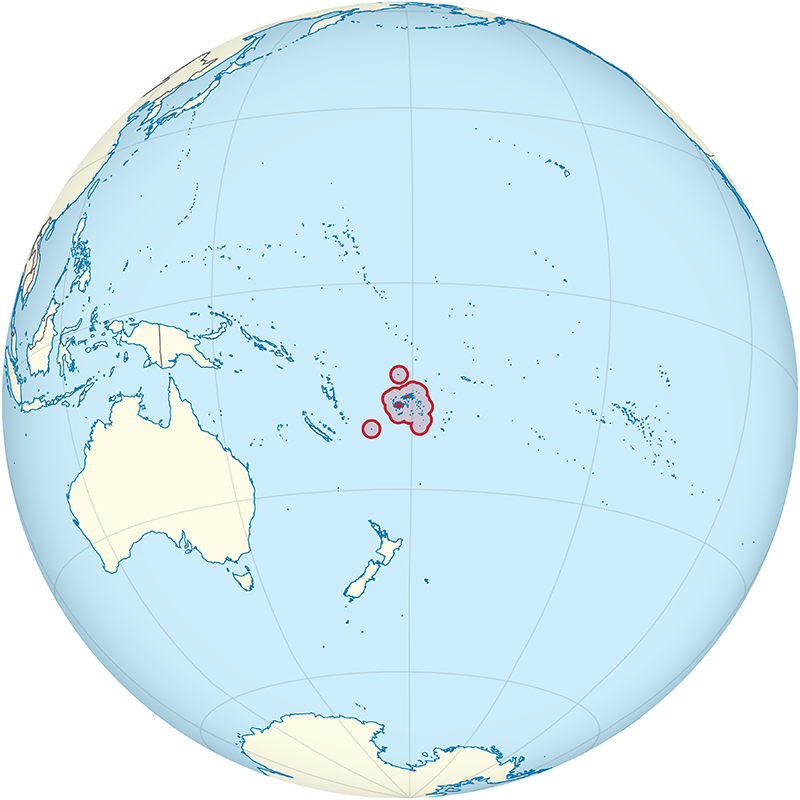
- Population:
- 929,000
- Religion:
- Christianity
Fiji was home to indigenous Melanesian and Polynesian cultures before becoming a British colony in 1874. It gained independence in 1970 and has since experienced periods of political instability. Fiji's economy is driven by tourism, agriculture, and sugar exports.
Fiji, officially the Republic of Fiji, is an island country in Melanesia, part of Oceania in the South Pacific Ocean. It lies about 1,100 nautical miles northeast of New Zealand's North Island. Fiji's archipelago comprises more than 330 islands, of which about 110 are permanently inhabited, and over 500 islets, amounting to a total land area of approximately 18,300 square kilometers. As of 2023, Fiji has a population of around 900,000 people. The capital and largest city is Suva, located on the island of Viti Levu. The official languages are English, Fijian, and Fiji Hindi. Fiji operates as a parliamentary representative democratic republic. The economy is one of the most developed in the Pacific region, with key sectors including tourism, agriculture (notably sugarcane), and manufacturing. Fiji is a member of international organizations such as the United Nations, the Commonwealth of Nations, and the Pacific Islands Forum.






